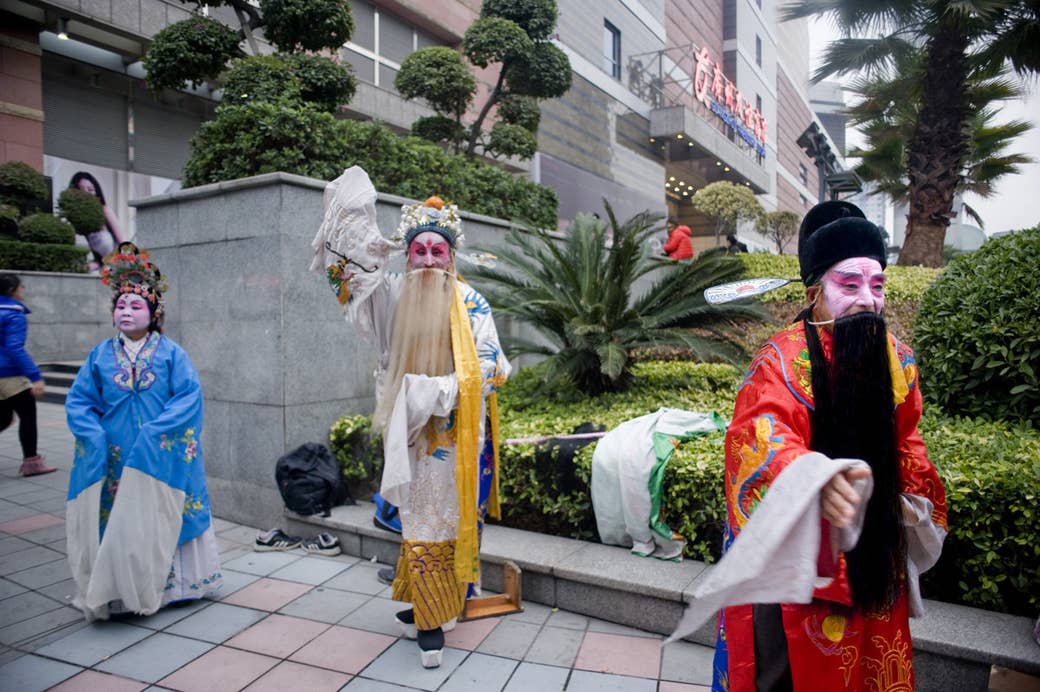
In February of 2012, I stumbled upon five street performers, aged between 58 and 78, on one of the busiest streets in Guangzhou. The troupe were performing Yu opera, formerly known as Hénán Bāngzi, which was born over 300 years ago in Hénán, a province which is now known for its poverty, AIDs, and industrial pollution. Yu is said to be the leading opera genre in the nation in terms of the number of performers and troupes; however, all traditional Chinese opera troupes (like Yu, but also Peking, Qin, and Cantonese, among others) have been overwhelmed by modern pop, Western classics, and film since the beginning of China's economic reforms in 1978. So, the performers have taken to the streets.
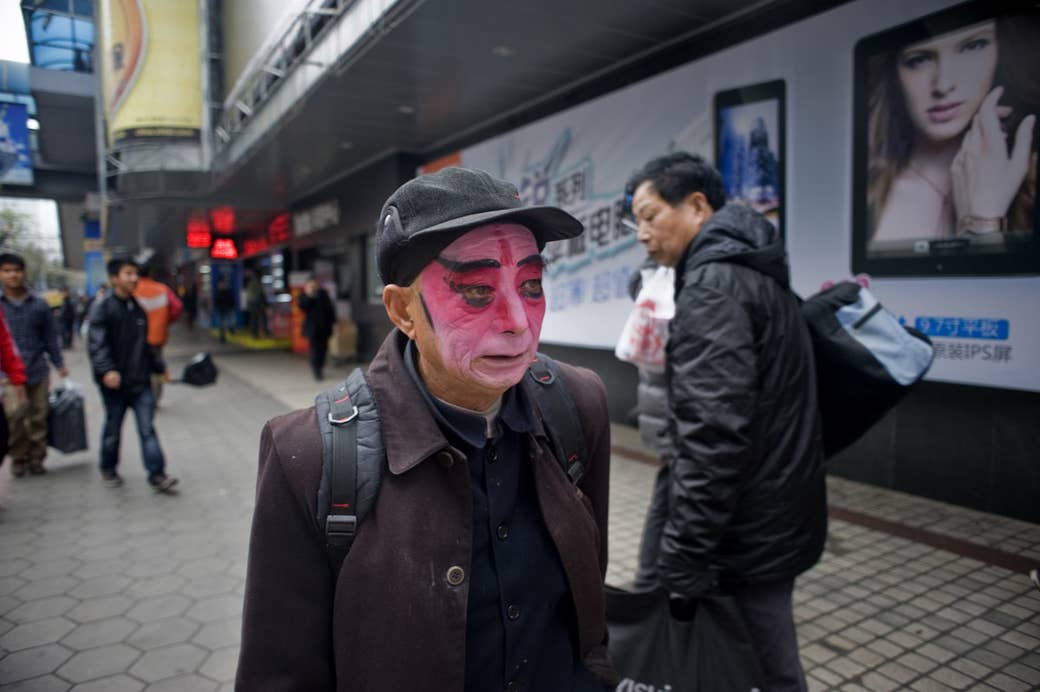
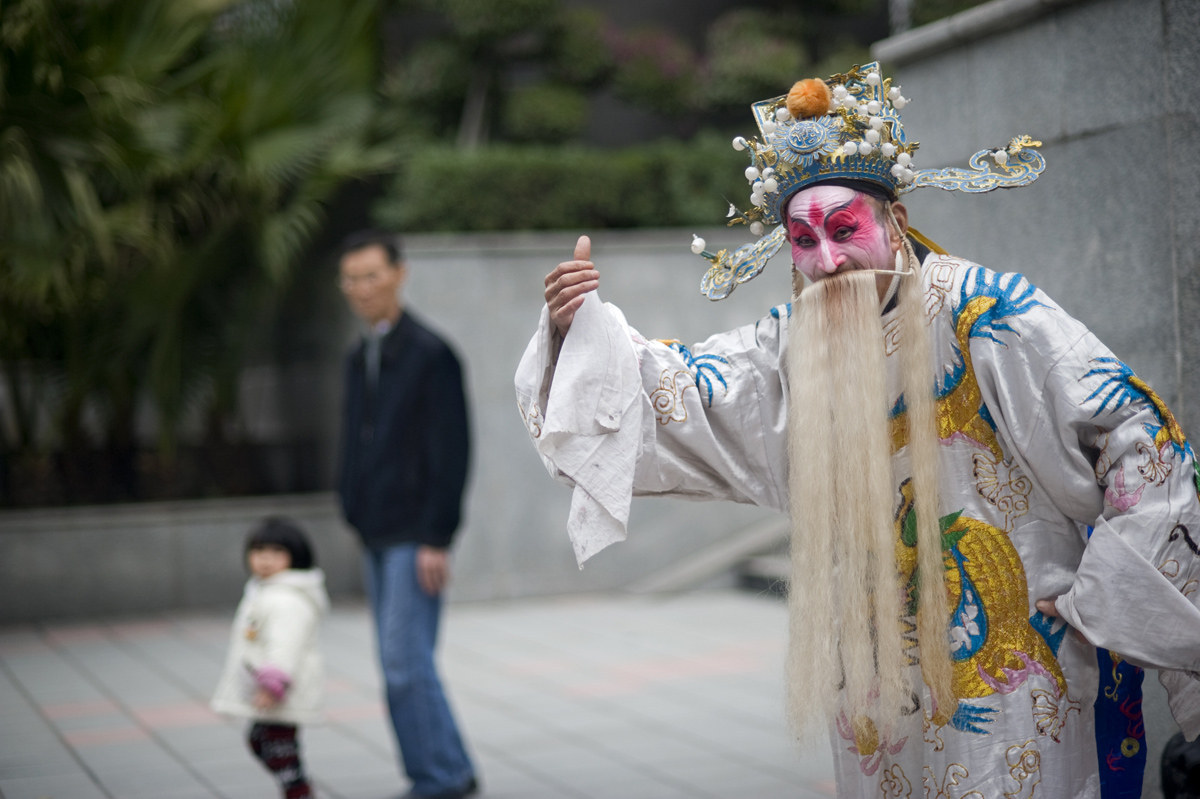
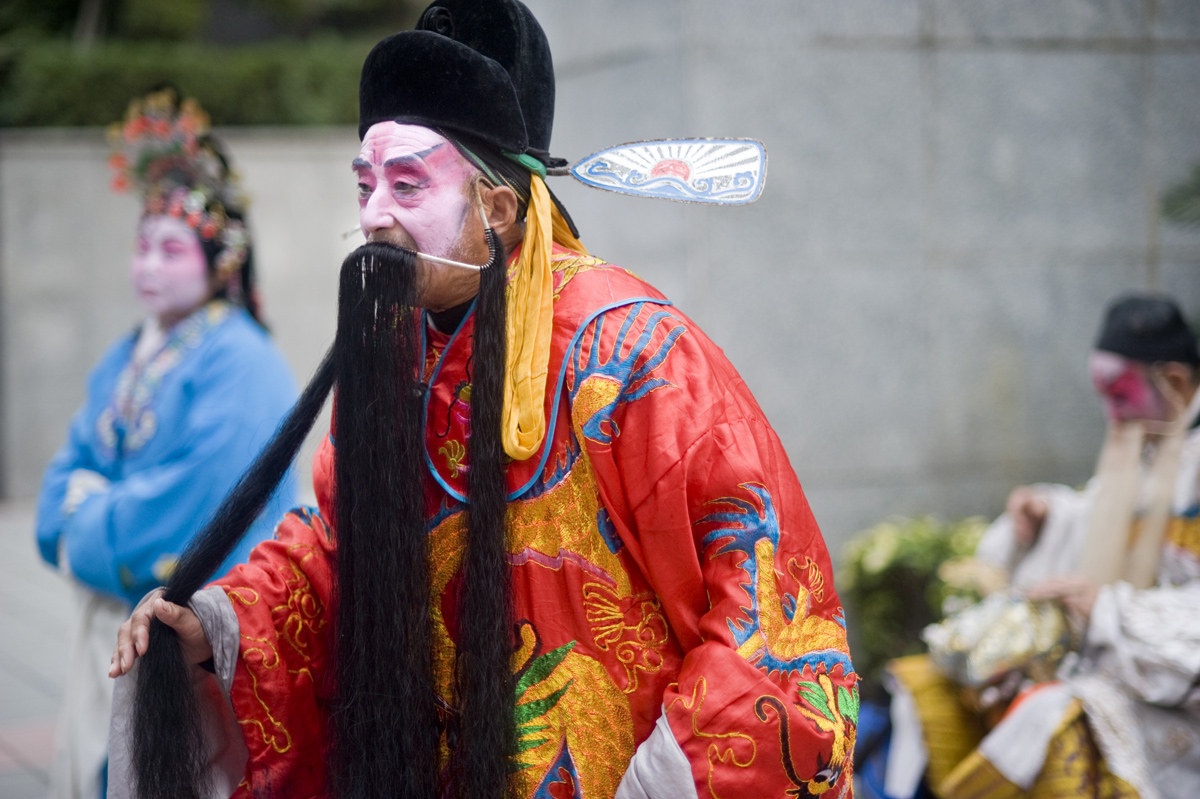
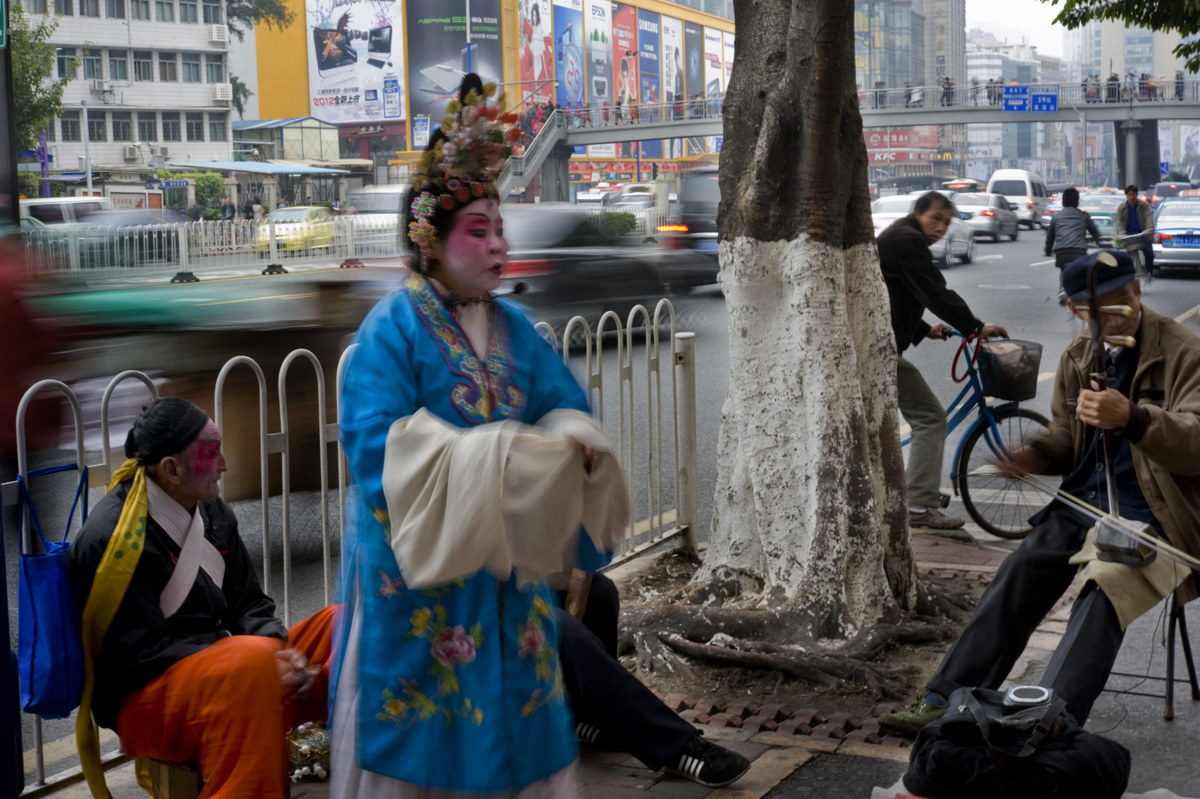
I was stunned by the contrast of their traditional costumes and dramatic makeup against a metropolitan background of heavy traffic, huge billboards, high-rise buildings, and rushing crowds. The juxtaposition mirrored how I felt about China as a whole — a mixture of old and new, tradition and modernity — and I asked if it would be all right for me to take their photos. To my surprise, they gave me full access to their lives. I followed them for three months.
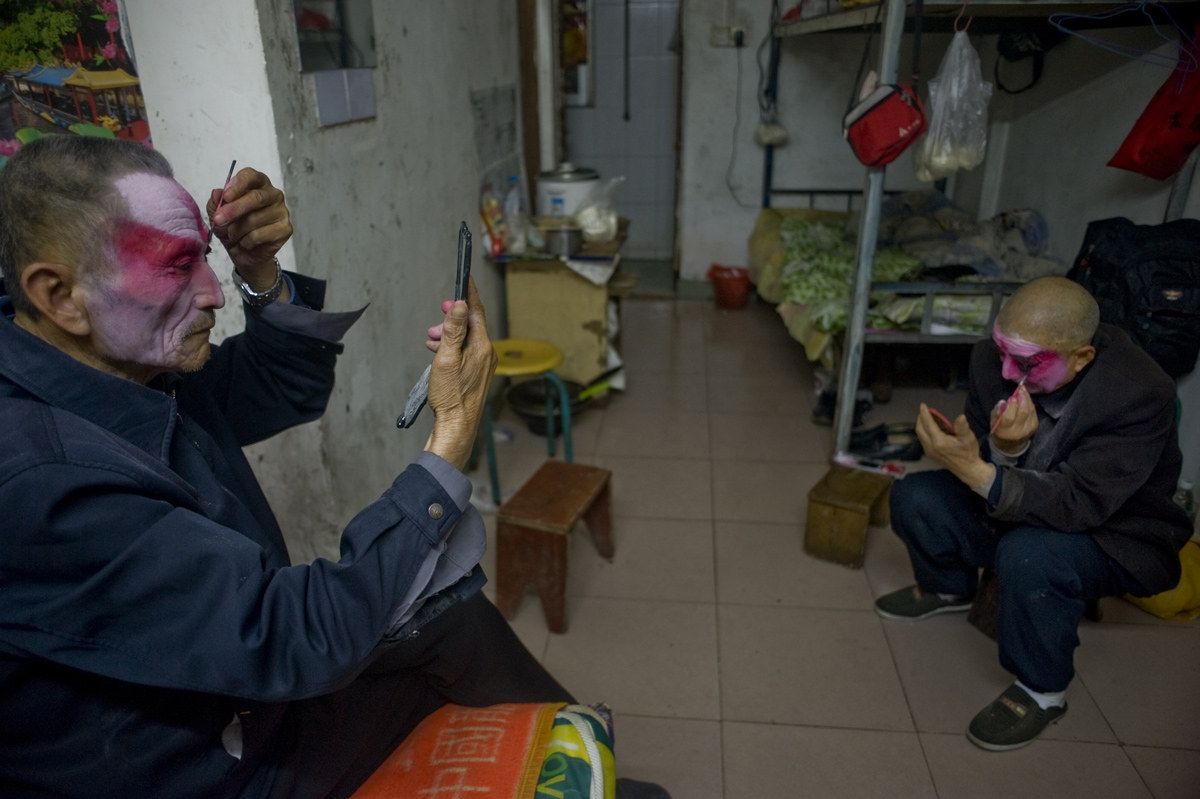
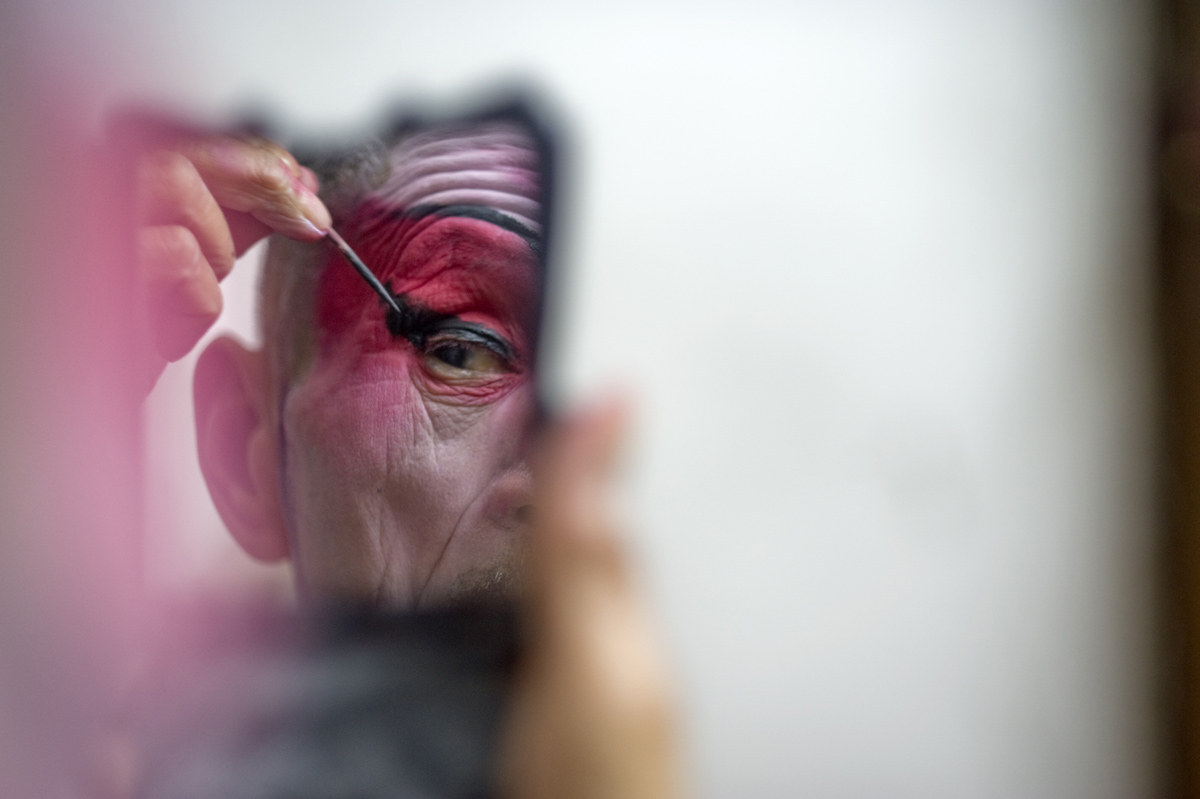
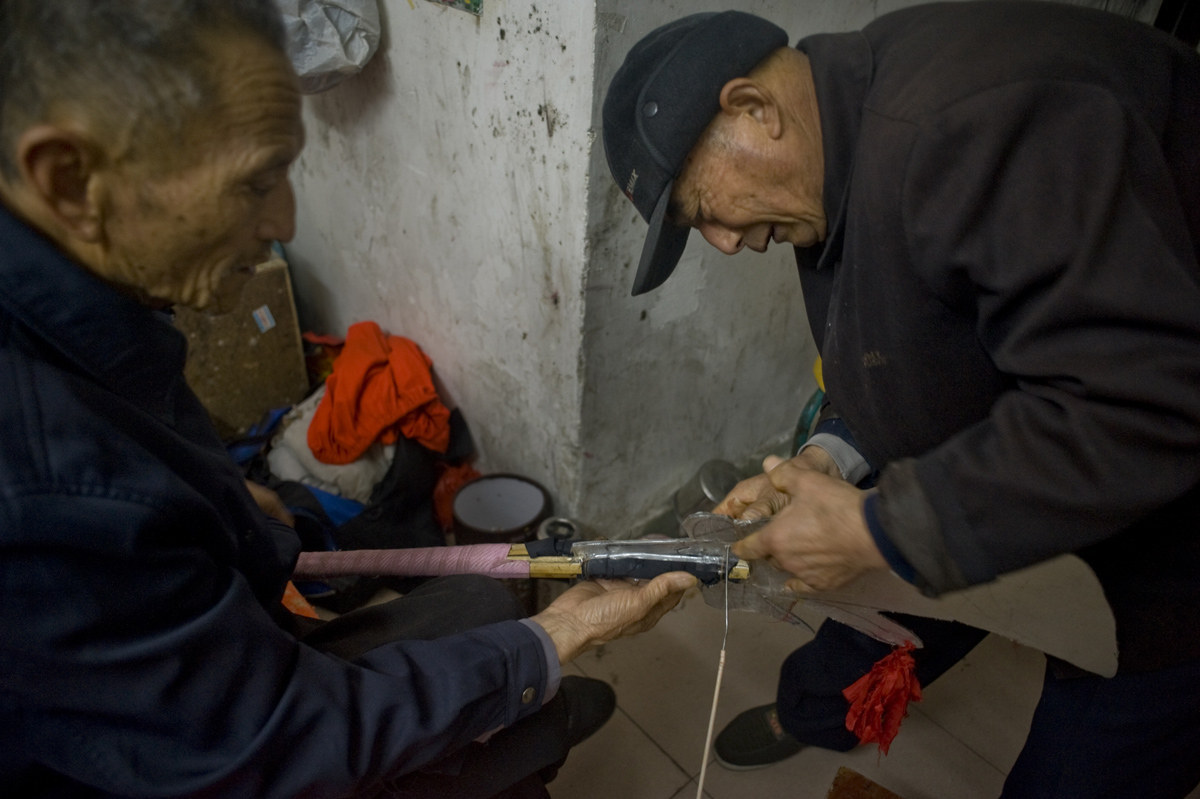
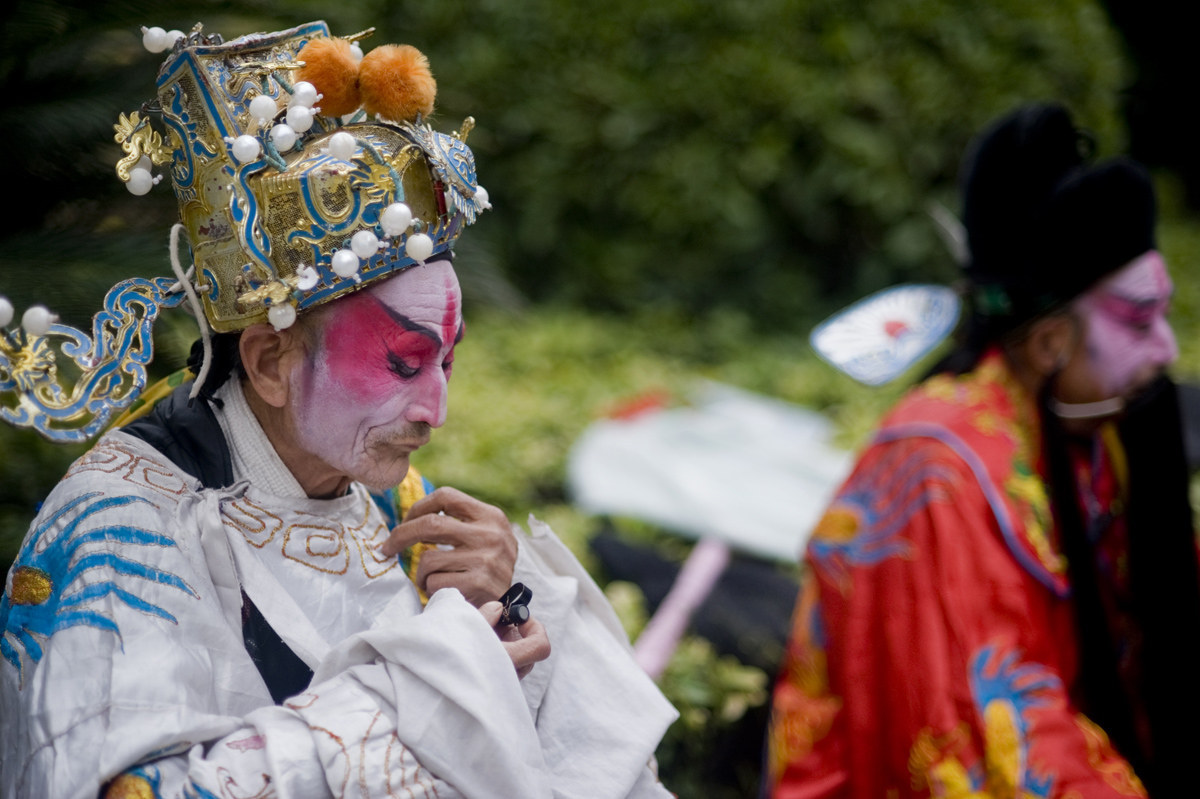
They told me about how they used to work as semi-professional county performers in their local Art Bureau, which was disbanded as modern entertainment became more prevalent, village populations moved to the big cities, and government funding dwindled. They'd had farm lands in their home villages, but found farming far less profitable compared to wage labor work in the big cities. Since they began traveling around China as street performers, their daily incomes have been unstable, earning around 100 to 200 RMB ($15-30) per person.
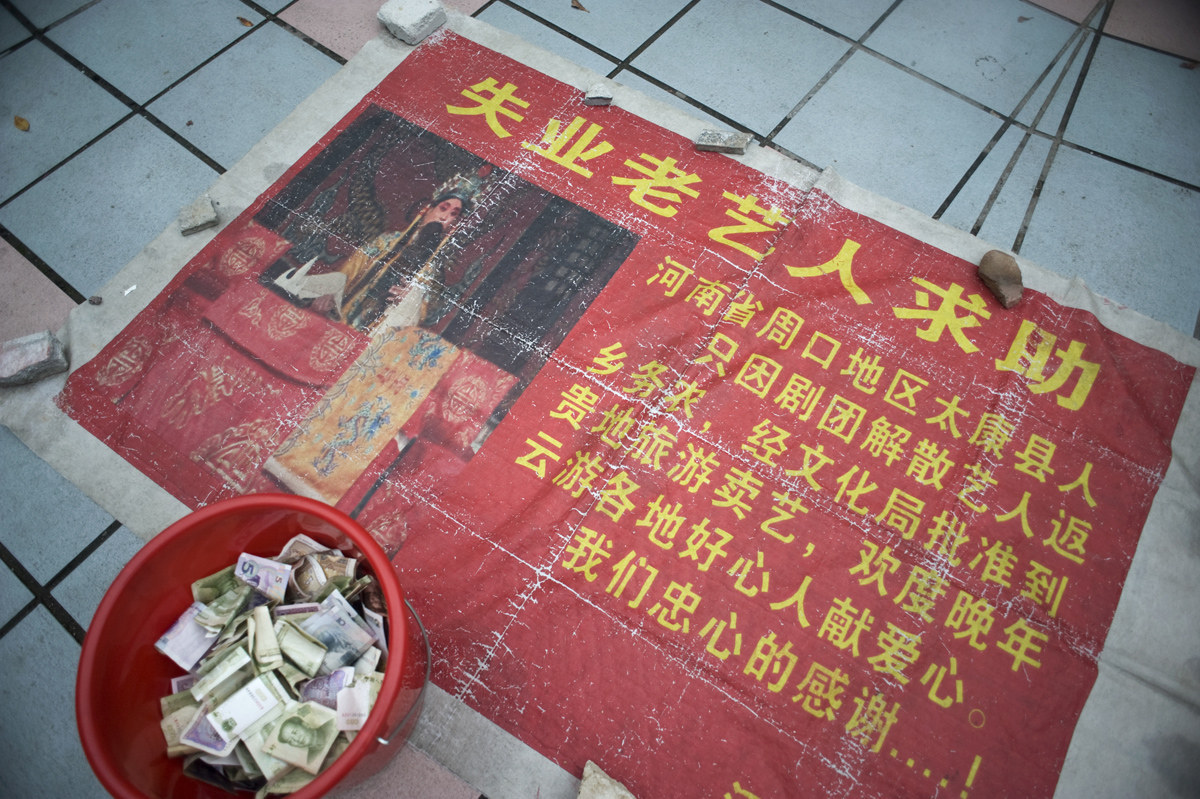
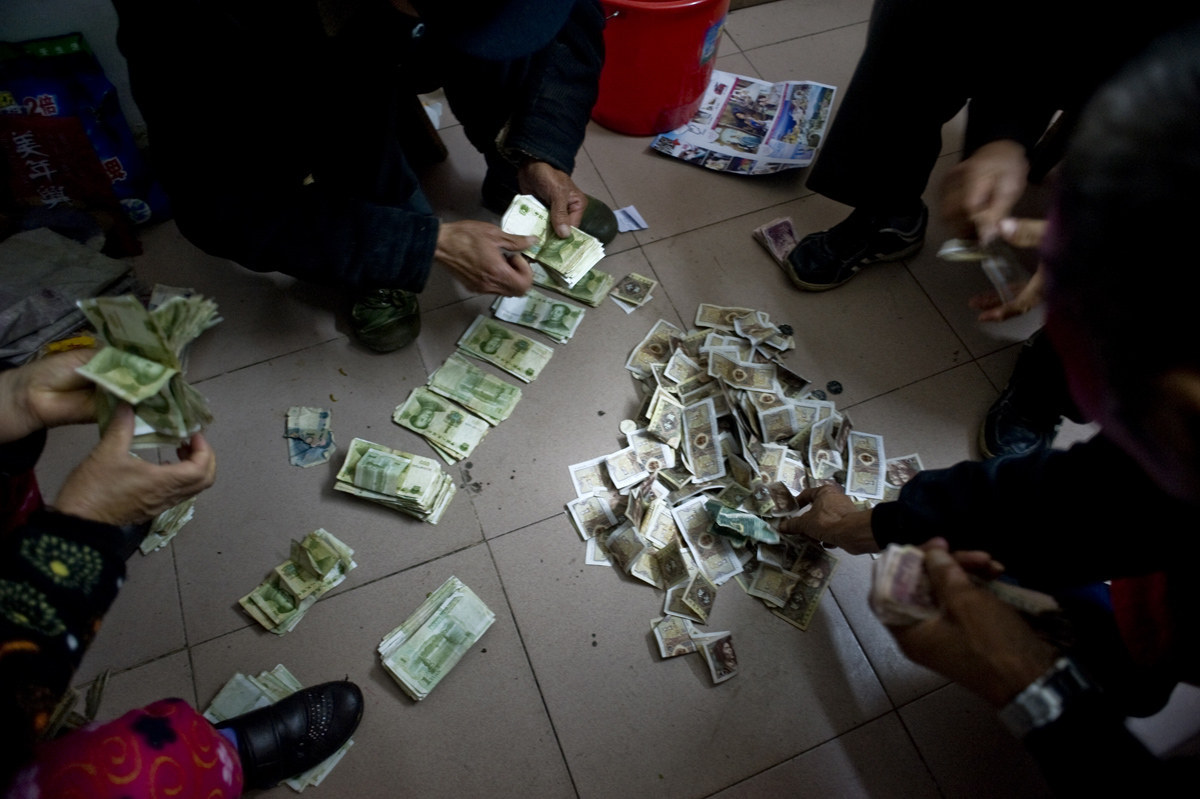
The group welcomed me into their temporary home, a 20-square-meter one-bedroom apartment in a Chengzhongcun (a shanty town owned by local Cantonese people, rented to wage labors from rural China) which they all shared. This tiny apartment had two windows, but the only light came from a fluorescent bulb.
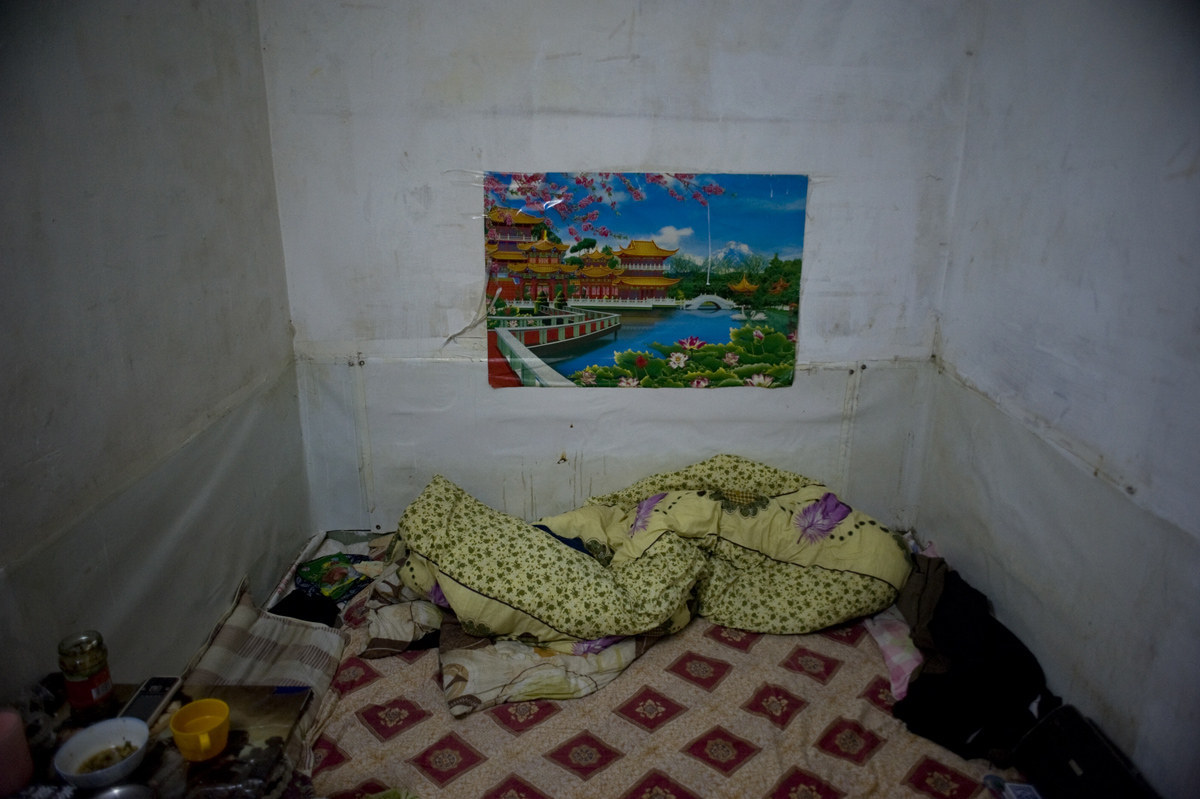
Xia Chen (Bangzi player, 58) and her 68-year-old husband, Qingjiang Han (Erhu player, 68), occupied the tiny bedroom. Yanqin Zhang (singer, 64) slept in a bunk bed opposite the bedroom. The two male singers, 70-year-old Dairen Huang and 78-year-old Jiazhi Xu, shared a bed in the living room.
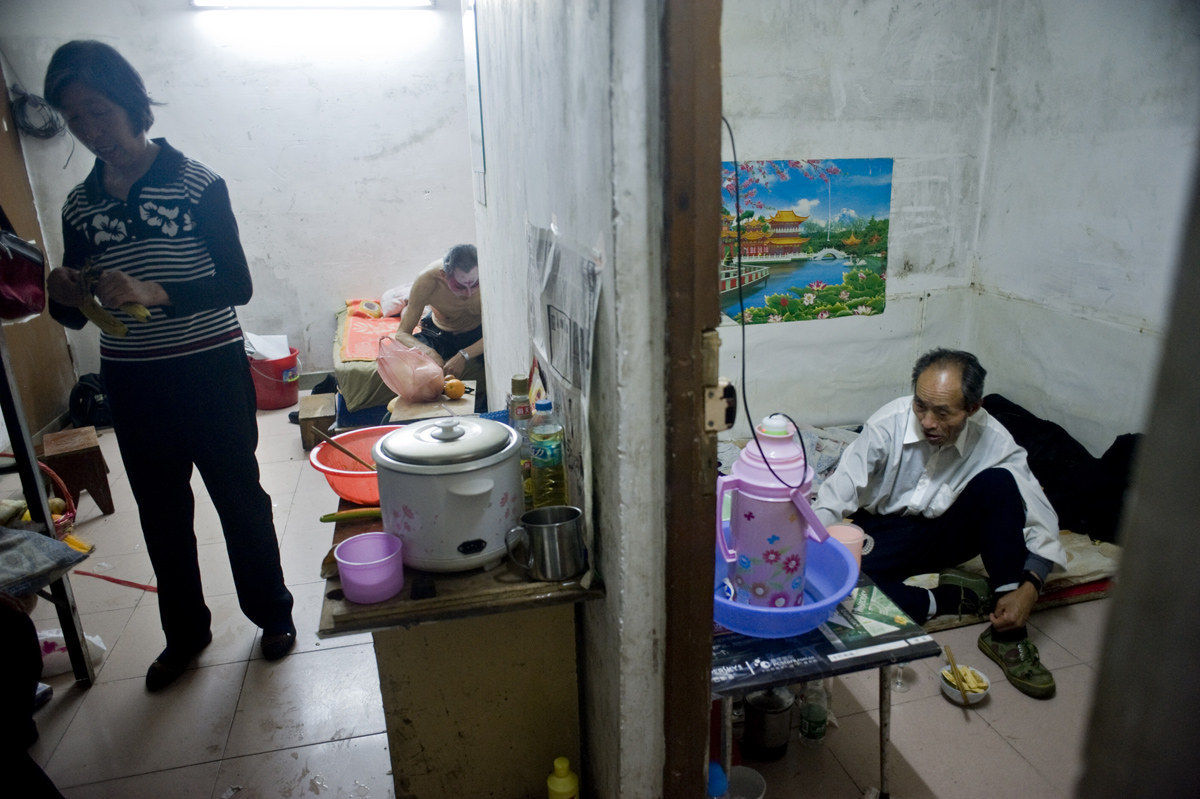
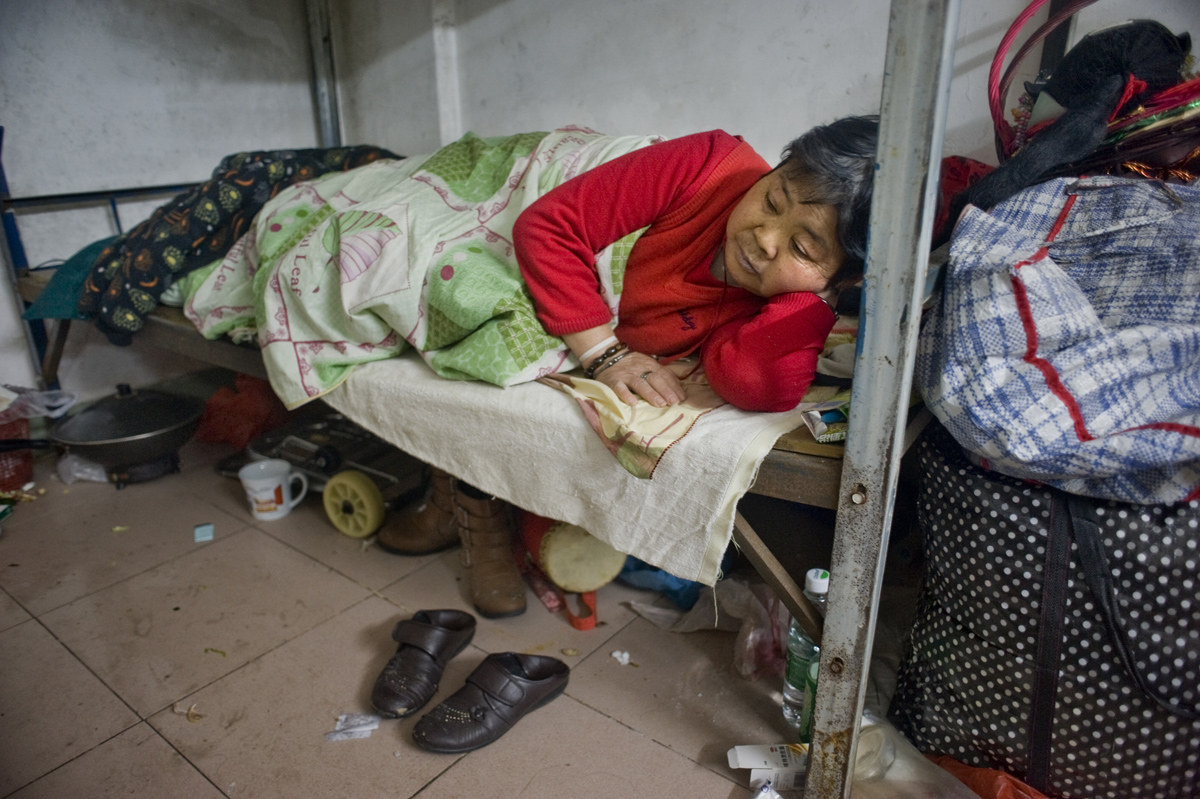
Everything was communal in this tiny, dim apartment, and they supported each other like a family. They treated me like family, too, inviting me to have dinner with them, urging me to find a man and get married, teaching me to respect my parents, as if I were their daughter.
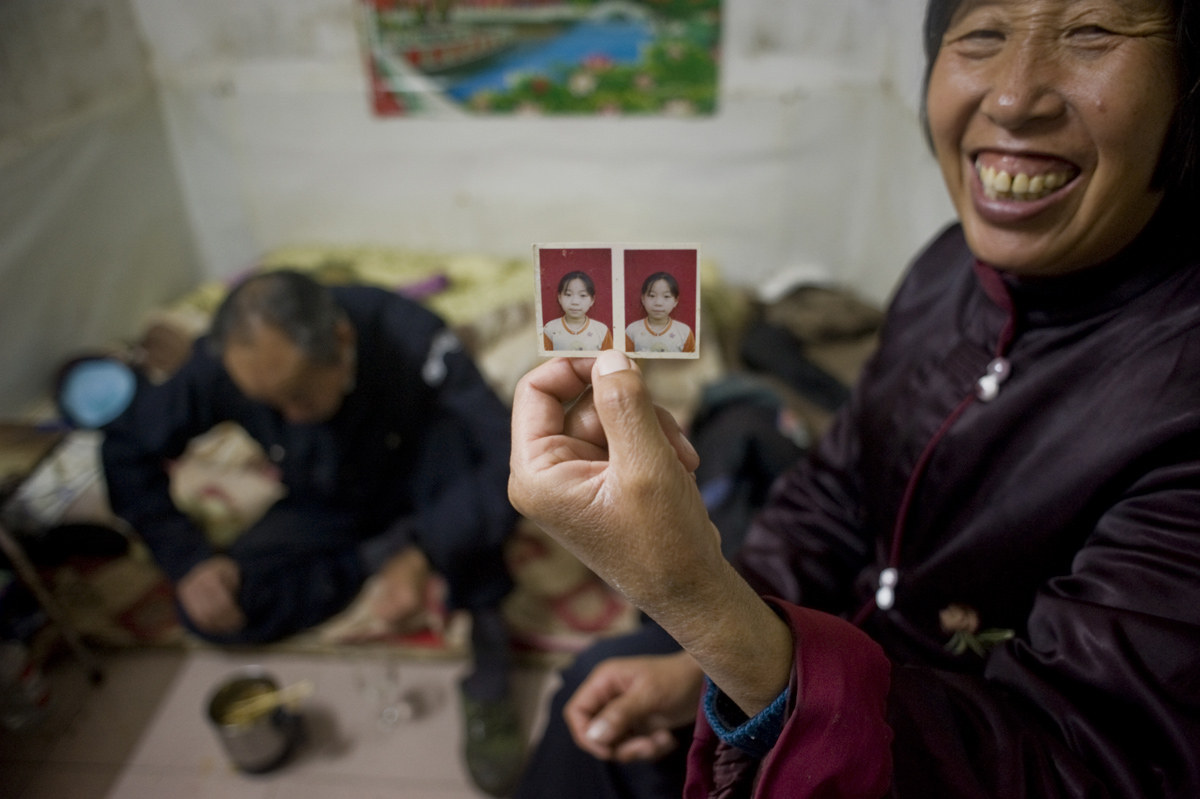
They protected me from a security guard's harassment when I photographed them performing outside a hospital, and I, with my camera, scared away a group of Chengguan (Chinese cops who clear city streets of peddlers, performers, and beggars) who wanted to drive them away, but feared being photographed doing so.
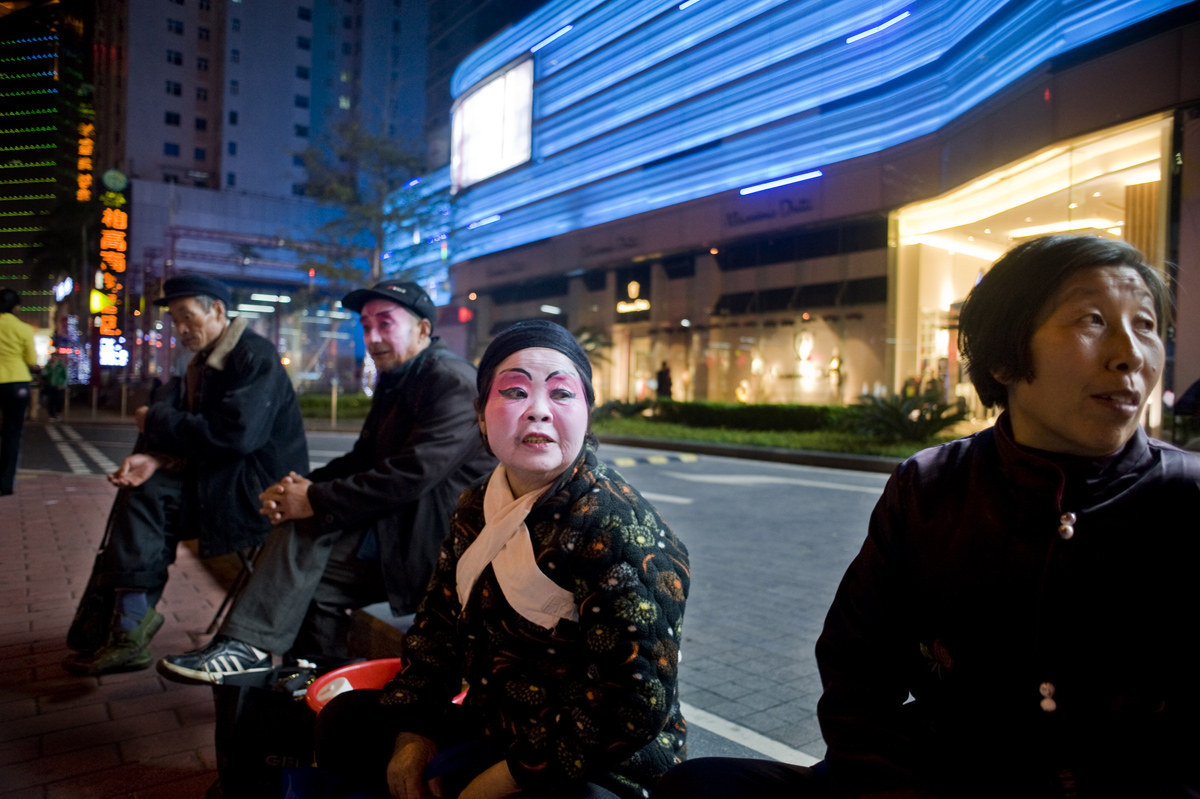
In March, 2012, Yanqin Zhang decided to leave the five-person troupe due to severe pain in her legs. In April, 2012, Jiazhi Xu also left the troupe due to a heart disease. I never saw them again. I called several times to say hello, but soon lost touch with them as they had changed their phone numbers. But every time time I see other Yu Operas in Guangzhou, I think of them — kind, honest, genuine people making great efforts for a better living.
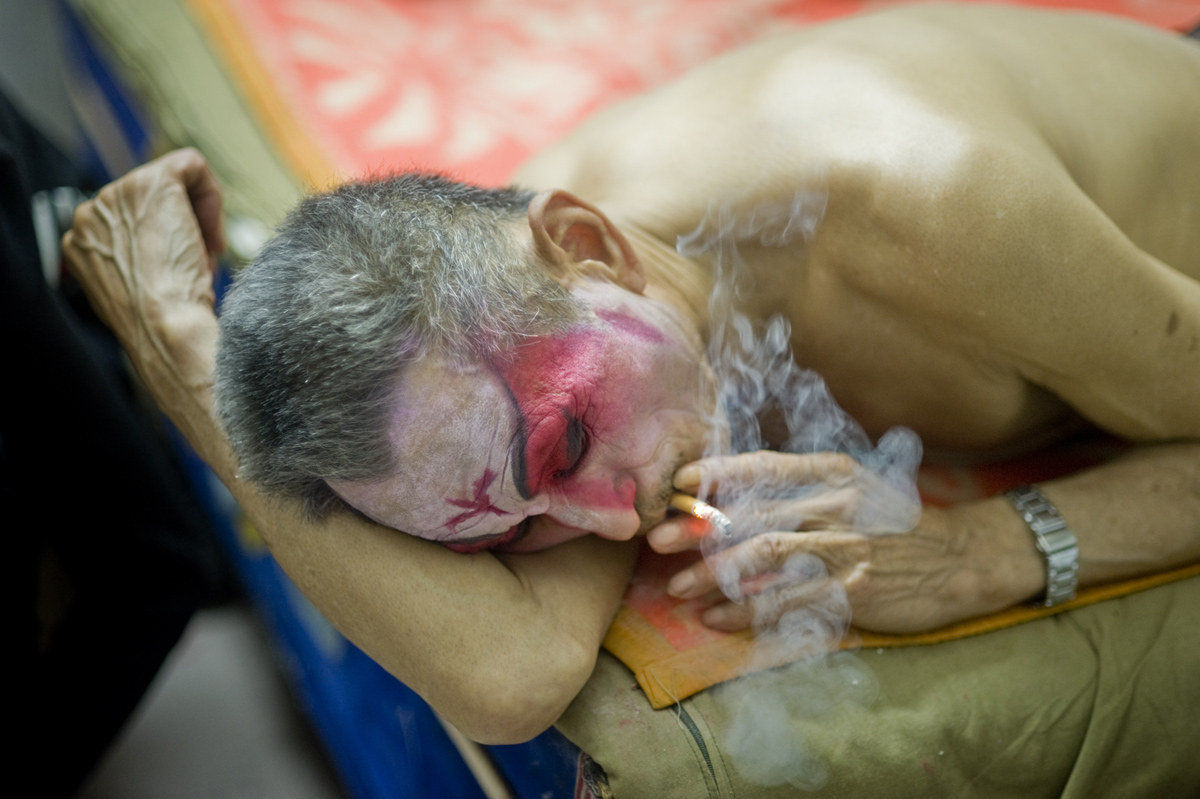
This photo essay is part of a series of stories about the meaning of home.


